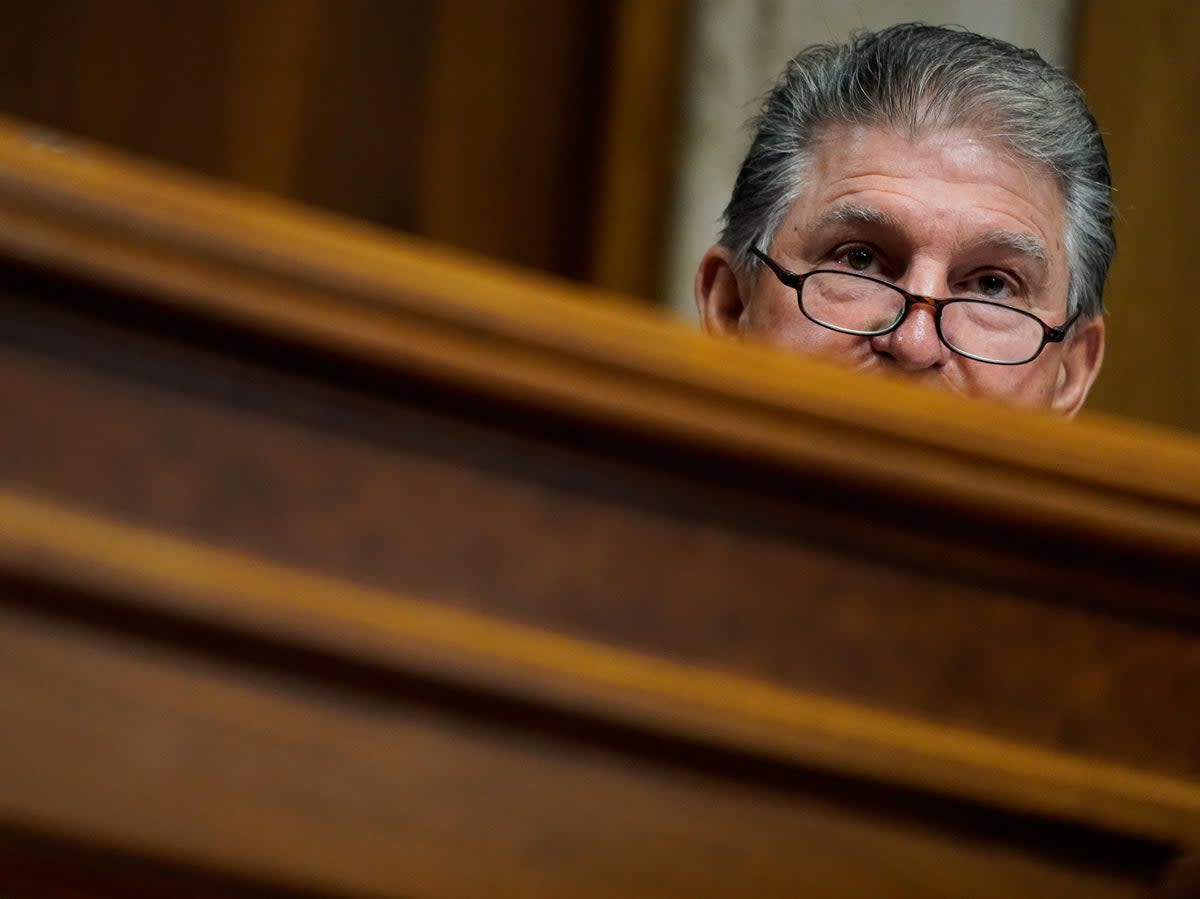Voices: Joe Manchin has handed Joe Biden a lifeline. So what now?

If the only news Joe Biden received on Wednesday had been a negative test for Covid-19, he would still have had a pretty great day – but the good news didn’t stop there.
First, the Senate passed a major piece of legislation to support the manufacturing of computer chips in the United States, guaranteeing that it will go to the House for a vote. And then Mr Biden got perhaps the best news he could have hoped for: Senator Joe Manchin, the incredibly fickle conservative Democrat from West Virginia, said that he and Senate Majority Leader Chuck Schumer had reached an agreement on passing a spending bill that would focus on health care and combating climate change.
To be sure, this is not the bill that Mr Biden wanted to be celebrating. He initially hoped to pass much of his social agenda in a massive package that would have not only included “hard” infrastructure like roads, bridges but “soft” infrastructure like child care, home care for people with disabilities and elderly people, investments in community colleges and historically Black colleges and universities, and clean energy programs.
When it became clear this package wasn’t viable, Mr Biden settled for splitting it in two, with the more conventional infrastructure hived off into a bipartisan infrastructure bill while other Democratic priorities were bundled into a separate bill to be advanced through the budget reconciliation process, thus allowing Democrats to pass it with a simple majority and sidestep a Republican filibuster.
House Speaker Nancy Pelosi initially hoped to pass the reconciliation bill – by that point known as “Build Back Better” – but moderate and conservative Democrats like Mr Manchin and Senator Kyrsten Sinema forced her hand, and she passed the bipartisan bill without a Mr Manchin’s hard commitment to vote for the reconciliation measure. And when Mr Manchin subsequently came out against Build Back Better last December, he and Mr Schumer began on-off negotiations to hammer out a smaller reconciliation bill.
As recently as two weeks ago, it looked like Mr Manchin’s anxieties about inflation were set to kill off what faint hope remained that a deal could be done – but the negotiations continued, progressing even as Mr Schumer and Mr Manchin contracted Covid-19.
That brings us to last night’s announcement of the deal that’s now on the table. As a clear sign that the party has accepted it would need to assuage Mr Manchin’s economic priorities, it has a new title: The Inflation Reduction Act of 2022. Mr Manchin’s anxieties are reflected in the price tag of $433bn – far from the initial ambitious price tag of $3.5 trillion – and the projected revenue of $739bn.
Ironically, had Democrats gone with the agreement that Mr Manchin and Mr Schumer had made privately to keep the reconciliation bill at $1.5 trillion, it would be far bigger. But that was back when many Democrats still wanted the full $3.5 trillion, a number that neither Mr Manchin nor Ms Sinema intended to swallow. Gone is the expanded child tax credit, which initially passed in Mr Biden’s Covid-19 relief bill, now sacrificed because Mr Manchin wanted a work requirement added.
Investments in child care are also out, an excision that left a bitter taste in the mouth for California Representative Jackie Speier.
“That’s more than that is significant to the economy rebounding for women, because we lost 1.3 million women in the workforce since Covid”, she told your dispatcher in the speaker’s lobby on the House side as the news broke. “So we’re gonna have to do it some other way.” (This she said after telling your dispatcher that “miracles happen”.)
For now, plenty of Democrats seem willing to take the win, however piecemeal it may be.
“Obviously I don’t agree with him on everything”, Representative Tim Ryan of Ohio told me. “But I think he also, with things like deficit reduction and making sure paying for stuff… I think he’s providing good service and is much better than having another, you know, Ted Cruz or Josh Hawley in the Senate.”
Mr Ryan is of course running for the Senate himself. and the reconciliation bill – along with the CHIPs legislation that will bring jobs to Ohio – gives him a fighting chance to win in a state that seems to be becoming redder by the hour.
And tellingly, he was far more gracious about Mr Manchin last night than he was last December. Back then, he put out a fundraising email that read: “If we want to make progress on the issues that matter, we can’t let a single Senator stand in our way”.


